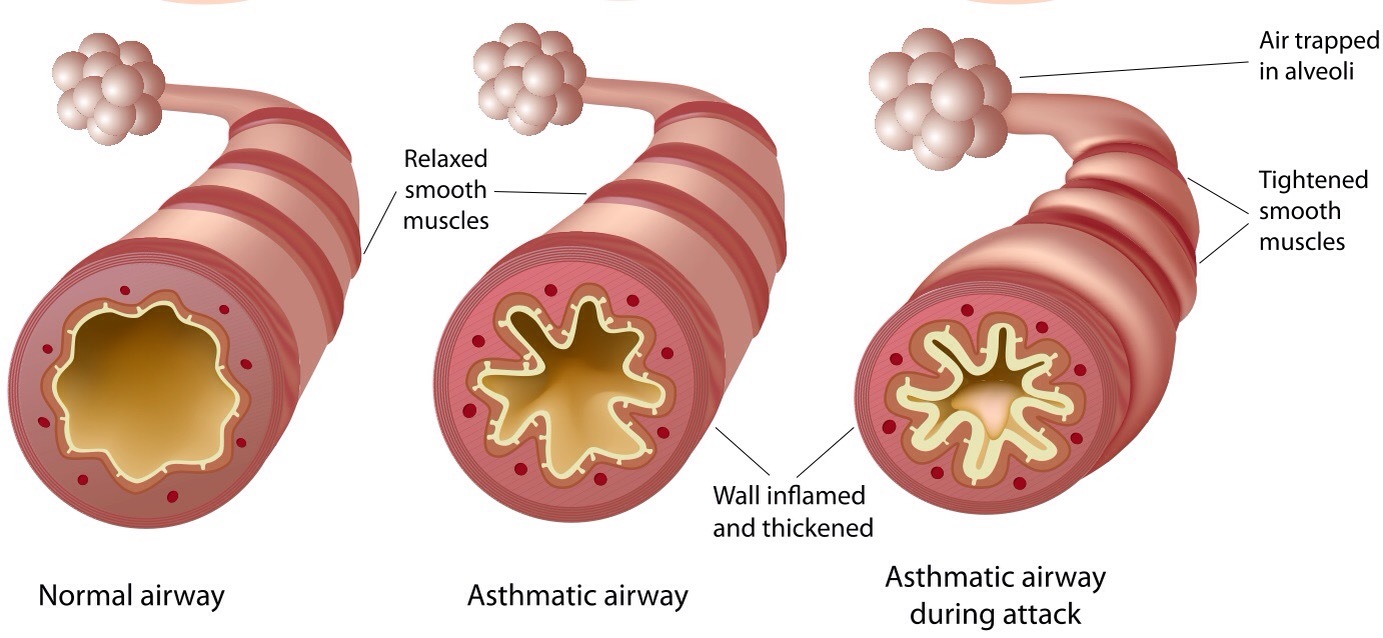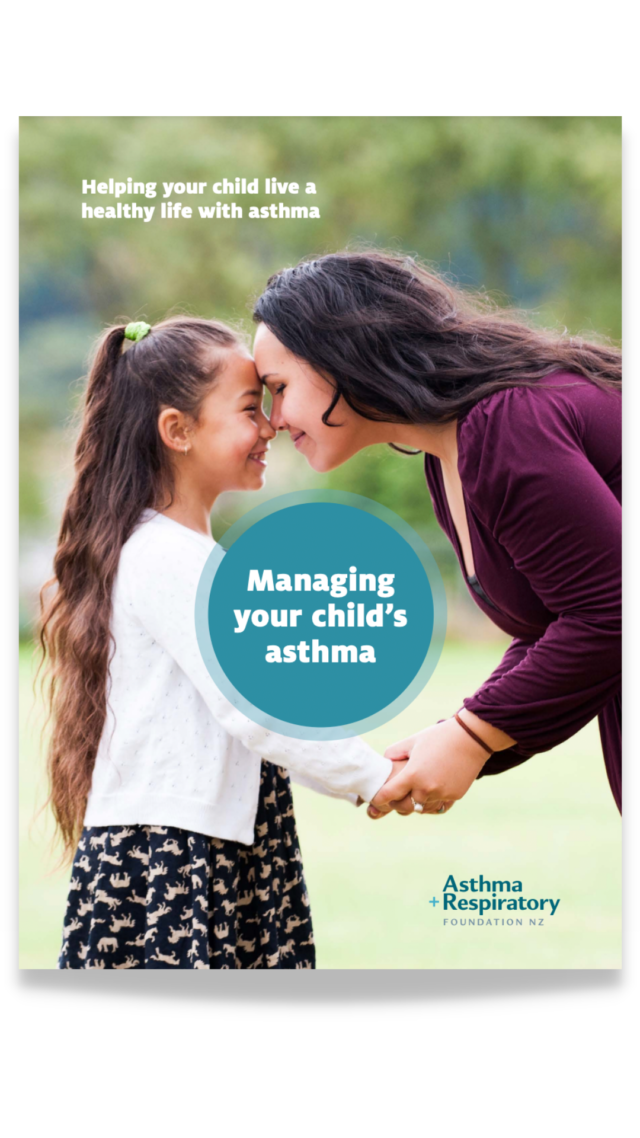In New Zealand, over 615,000 people take medication for asthma – this is an estimated 1 in 8 New Zealanders. For children, asthma is one of the most common causes of hospital admissions. On average, 96 people die from asthma in New Zealand each year – that’s nearly two people each week.
While there is no cure for asthma, there are many things you can do to manage it effectively to ensure you live a full and active life. The first step is to learn as much as you can about the condition and how to manage it.
What is asthma?
Asthma is a disease of the airways in the lungs. People with asthma have overly-sensitive airways. When faced with certain triggers, the airways may tighten, partially close up, swell inside and make more mucus. This makes it hard to breathe in, and even harder to breathe out.

Illustration courtesy of Ophea Asthma Friendly website (CA)What causes asthma?
What causes asthma?
Asthma is caused by a combination of genetic and environmental factors. While we don’t know why so many people have asthma, we do know that it is most common in developed English-speaking countries like New Zealand, the United Kingdom, Australia, and the United States. It may be related to ‘modern living’ – perhaps to changes to the environment, our diet, or different exposure to some infections. It is likely that all of these things have an effect, and hopefully in the future researchers will come up with a way of preventing people from getting asthma.
What are the symptoms of asthma?
The most common symptoms of asthma are:
- Wheezing (your breath might make a ‘whistling’ sound from your chest as you breathe in and out).
- Shortness of breath.
- Tightness in the chest.
- Coughing.
You may experience one of these symptoms or a combination of them. Symptoms may occur suddenly as an asthma flare-up (asthma attack) or they may come on gradually. It is important to know exactly what to do if you or someone you care for has an asthma flare-up, or an asthma emergency and needs urgent treatment by your primary health care team, primary care After Hours service, ambulance service, or hospital emergency service.
Every person with asthma should be given a personalised asthma action plan by their healthcare practitioner. An asthma action plan is a written self-management plan, with clear instructions on how to recognise and respond to worsening asthma symptoms using your prescribed medication.




